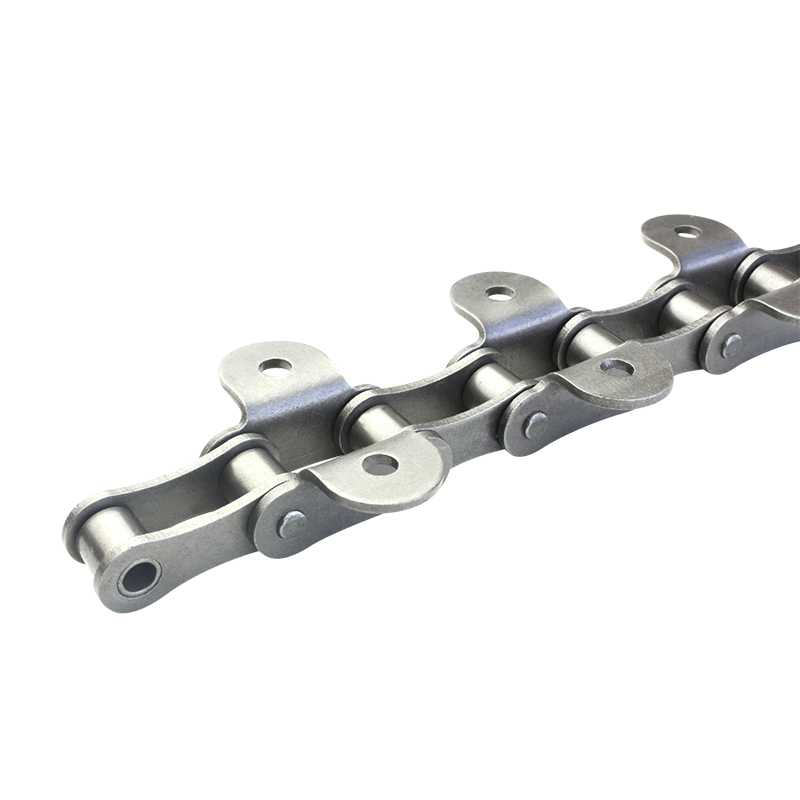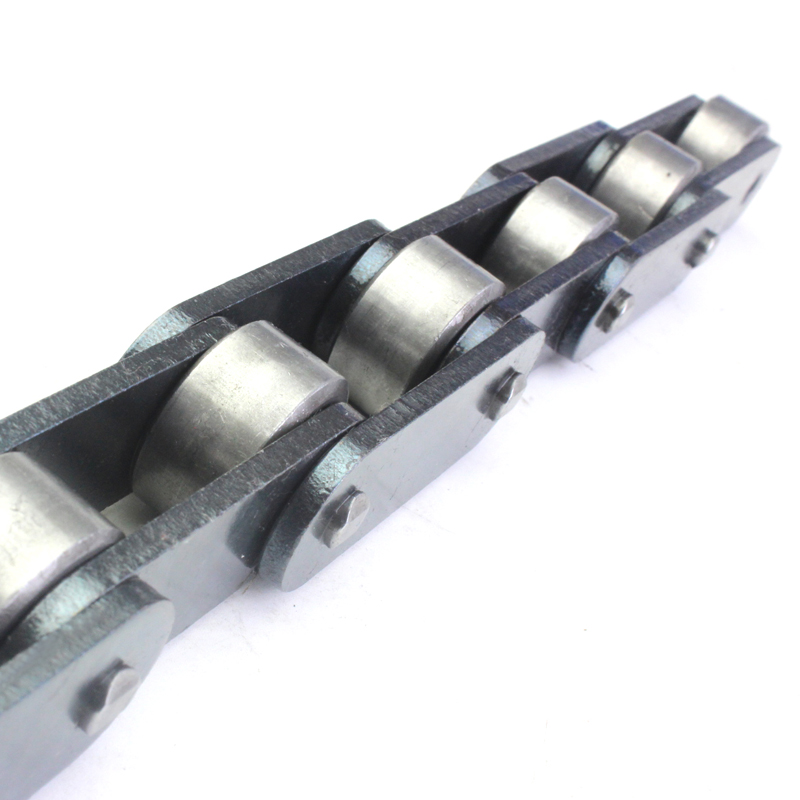Tire chains will give your vehicle great grip on ice- and snow-packed roads.
Gear-obsessed editors choose every product we review. We may earn commission if you buy from a link. Why Trust Us? Industrial Chain Lube

Winter delivers the kind of harsh weather that can make driving dangerous. Slapping a set of winter tires onto your ride before the going gets rough is a smart move, especially if you live in an area where snow and ice are a part of your daily routine.
For many drivers, winter tires will alleviate those white-knuckle rides in bad weather, but they won’t do the trick if you’re navigating extremely snow- and ice-covered roads or pushing through mountain regions. If, like me, you live in milder climates like the lowland parts of the Pacific Northwest or California, and periodically drive up to ski areas or through mountain passes, then buying winter tires and switching them with summer or all-season tires at the start and end of winter may not be worth the expense, time, and trouble.
Tire chains and other traction devices offer a less costly (if not more convenient) alternative, and it's even mandatory in 11 Western states to at least carry them in your vehicle in certain areas and weather conditions. Here's how they work: By increasing the friction coefficient between a tire’s rubber and slippery surfaces, tire chains add an extra layer of traction and protection when taking on sharp turns and steep inclines.
Even so, tire chains can be a bit of a nuisance to mount. Since they shouldn’t be used on pavement that’s not covered in snow and ice, it typically means you’re putting tire chains on in cold, snowy, and miserable circumstances. For that reason, it's advisable to give your tire chains a run-through prior to actual use. By pre-fitting, you'll have a chance to familiarize yourself with the installation process, which hopefully minimizes the time needed when you're installing them in averse conditions. There’s also a speed limitation with tire chains—you can’t drive more than 30 mph with chains on without risking damage to your wheels, tires, and chains.
Tire chains should go on all drive wheels of your vehicle. If you have a 4WD or AWD vehicle, put tire chains on all four tires which means you will need to purchase two sets as these typically are bought in pairs.
You wouldn’t put just any tires on your vehicle, right? So the same goes for a traction device on your tires. Tire chains need to fit the specific size tires on your vehicles. If they’re too small they won’t fit around your tire, and if they’re too large they will be loose could potentially damage your vehicle. Be sure to check your vehicle owner’s manual because some automakers explicitly state that chains should never be used on certain vehicles, while almost all caution that damage from improper or poorly installed chains may void a vehicle’s warranty.
Get Road Ready for Winter Weather: How to Drive in Winter • Car Emergency Kits • Electric Car Range in Cold Weather • Best Spray De-Icers for Wintry Windshields
Next, you’ll need to decide what type of traction device to use. “Snow chains” is a catchall term for both actual chains and for cables which consist of tightly twisted wire that are usually lower in cost and can be quicker to install than chains. There are also temporary and even easier-to-install options like tire socks and cleats.
Some devices come with or without tensioners to keep the chains or cables tight. In this roundup, I’ve tested several self-tensioning snow chains that come with spring-loaded arms or plastic clips. If they’re not included, you’ll need to separately purchase spider-style tensioners.
To test these snow chains, I enlisted the help of my friend Francois Pelletier, who literally grew up on skis, ski slopes, and winter mountains since his family ran resort restaurants (and his sister Monique is a two-time Olympic skier). We met at Oregon’s Mt. Hood Meadows and tried out several snow chains and other “traction devices” using a 2017 Honda CR-V.
Testing was done after a week of snow. The roads up to Mt. Hood Meadows and the ski area’s parking lots had been plowed and featured a variety of conditions ranging from several inches of relatively fresh snow to ice-covered asphalt to almost bare pavement.
We drove up to the ski area on Oregon Highway 35 and then did laps around the Mt. Hood Meadows parking lot and on some of the resorts’ private roads. Our test routes included an assortment of flat surfaces, snow-covered grades, and tight turns. We gauged the recommended devices for their overall traction proficiency, the road feel and driving comfort, stopping distance under hard braking, and how difficult they were to take on and off the CR-V’s front 235/60R18 snow tires.
The König XG-12 Pro 235 snow chains earn the top ranking in our tests for their exclusive chain-pattern design that uses welded double traction plates to ensure maximum grip. They’re easy to install courtesy of König’s Micro-Adjust system that makes mounting and tensioning the chains straightforward while offering a tight fit on the tire.
The chains’ Active Tensioning and Balancing device keeps the chain snug and centered while driving, eliminating the need to stop and cinch the chains. These snow chains also delivered the best drive feel and shortest stopping distance of all the chains we tested.
If you’re tight on funds once the snow flies, these basic cable-type chains will get you where you’re going—as long as it’s not too far a trip. These tire chains are lightweight, which makes them easy to install and remove, and they also provide a smoother ride. Stopping distance is longer than with higher-quality chains, however, and some sizes need tensioners that are sold separately.
Built from manganese alloy steel, these tire chains feature square crosslinks for maximum grip and durability and come in a variety of sizes to fit tires of almost any size.
Installation was relatively quick and simple, and a patented ratcheting system automatically tightens the chain while driving. But we found they made driving a bit rough feeling.
If you’re one of the dwindling number of drivers who still own a sedan, coupe, wagon, or other traditional passenger car, these chains will fit your tires and keep you safe on slippery surfaces.
These use cables wrapped in steel coils instead of chain links, so they’re lighter, require less storage space, and are ideal for compact vehicles.
The ones we tried come with tensioners to keep the chains snug on a tire. (But the provided cheap clear plastic gloves are useless in cold, harsh conditions). True, the coils don’t dig into snow as deeply as chains, but they get the job done and are easy to install.
If you want guaranteed traction without busting your budget, these cable chains with manganese-alloy cross members provide solid performance and durability for the price.
The Z-Chain conveniently fit a wide variety of vehicles—everything from sedans to SUVs. According to the company, the chains have been redesigned for better compatibility with features like ABS and other electronic traction-control systems on modern vehicles. The fastening system has also been updated for easier installation; but we still found them more challenging to attach than others included here.
If you drive a large SUV and price is not a problem, the König K-Summit XXL K66 snow chains may be a smart choice. They’re compact, flexible, and designed for installation on the outside of the wheel, making them easy to attach and remove and extremely low profile.
The K-Summit chains come with proprietary adapters, and fastening is done via a supplied wrench that indicates when the ideal torque is reached.
An integrated ratchet system allows the chains to automatically reach an ideal tension while driving, but these chains are the heaviest ones recommended.
Fabric “snow socks” are a great alternative to heavy, bulky chains because they’re easier to install and remove and they provide good grip in snow and ice. Included with the pair of snow socks are a zippered storage bag, pair of gloves, and wet carrying bag.
Available in sizes that fit tires from 13- to 22-inches, these snow socks are approved traction devices by the Colorado Department of Transportation and are legal in California and other states, although K&K advises that they “may be restricted at times due to local conditions.”
While you can drive on bare pavement with chains for a short period, you can’t do that with just socks because they can be easily damaged. We found the ride quality is better than with chains and stopping distance is adequate, though not as good.
What is the top consideration when buying tire chains?
Whether they fit your car’s tires properly and are installed correctly as to give you adequate traction and not damage your wheels or vehicle. Test-fit them soon after you receive them to make sure you're comfortable with the installation and that they fit properly—if not, be sure to exchange them for a different set.
Do I need tire chains and snow tires?
Typically, you don’t need both, but in some extreme circumstances, such as slippery snow, slick ice, and a combination of the two, chains on snow tires is a “belt and suspenders” solution.
How difficult is it to install tire chains?
It depends on the chains or other traction devices. For example, snow “socks” are relatively easy to install, whereas some chains can be a pain. No one really looks forward to the experience! Practicing installing and removing them before you need them is a smart way to help the process go smoother when you actually need them.
Doug Newcomb splits his time between Hood River, Ore., and Todos Santos, Mexico. He's been writing about technology and cars for more than 30 years for Wired, Rolling Stone, Road & Track, Automobile, PCMag.com, Playboy and numerous other publications. He cofounded the C3 Group in 2013 to produce automotive industry events in New York, San Francisco, Washington, D.C. and at SXSW in Austin. C3 Group was acquired by Informa in 2018. When he's not writing, he's riding a surfboard
The 7 Best Electric Snow Shovels
The Best Cheap Snowblowers for $700 or Less
The 6 Best Gas Snowblowers for Clearing Snow
Tested: The 8 Best Snow Shovels
The Best Car Floor Mats for Sedans and Trucks
6 Best Sidewalk Scrapers to Eliminate Ice and Snow
Dig Yourself Out With One of These Snowblowers
The Best Generator Covers for Any Make and Model
A Part of Hearst Digital Media
We may earn commission from links on this page, but we only recommend products we back.

Roller Coaster Chain Lift ©2023 Hearst Magazine Media, Inc. All Rights Reserved.